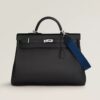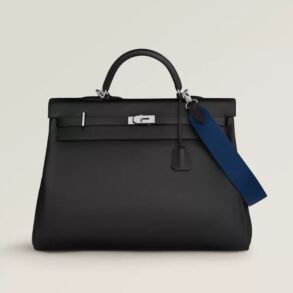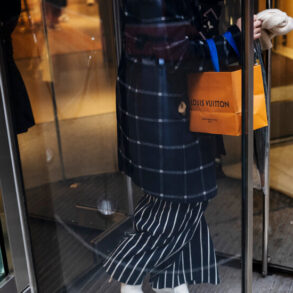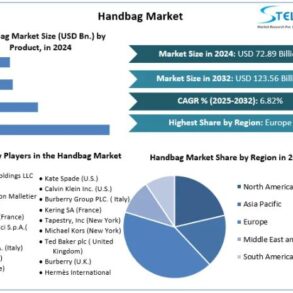‘I think the investment opportunity comes secondary to the enjoyment you get from it. People should invest in things they love; if the value goes up, that’s an added bargain. But it’s got to come from a place of passion and the intention to retain it long-term,’ says director of FSWM Frankie Smith on the place that luxury handbags have in the world of asset classes.
Earlier this year, Smith (pictured above) held an event which was attended by 100 women on how luxury handbags could have a place in our investment portfolios.
‘If you’re tired after a stressful day, you’re probably going to say no to that talk about pensions,’ she said. ‘This doesn’t feel daunting, and it’s something people want to come and learn about.’
When considering which handbags to buy, Smith recommends sticking with the classics for a safer investment due to the enduring nature of their value and appeal.
‘There are a few brands that retain and increase their value over time, such as Chanel, Dior, Hermès, Birkin, and Louis Vuitton, especially the classics in the collection which have been more expensive to buy in the primary markets over time,’ she explained. ‘This has a knock-on effect on the price in the secondary and pre-loved goods markets which have been booming in recent years.
‘Trends will come and go, so before jumping on what’s hot, think about the long-term value of what you’re purchasing.’
Some classic bags are also limited edition with brands such as Hermès and Birkin only allowing a select type of people to purchase them from the primary market, increasing their value when they are sold due to their exclusivity.
Smith also emphasises the importance of authenticity and provenance when buying handbags as investment pieces.
‘People have become increasingly astute when creating copies of bags, so if you’re inheriting a bag, it is always good to check with an expert to see if it is genuine, and if it is, maintaining the condition of the bag is also crucial so make sure you keep it in its box and look after it to ensure you can get the best price down the line,’ she explains.
While consumers increasingly enjoy investing in alternative assets like handbags, especially with the growing trend towards sustainable consumption and the rise of the pre-loved goods market as evidenced by Selfridges’ launch of a dedicated section for preloved items, Smith stresses the importance of understanding the unique nature of alternative asset classes and doing thorough research of the investment before diving in.
‘You have to be mindful that while physical assets can offer a hedge against inflation, alternatives are very illiquid,’ she said. ‘These are long-hold investments, and you can also only make money if someone else sees the value in it to buy it.
‘I talk to my clients about having core strategies like having pensions, ISAs and protection, and then using alternatives as a diversifier but not to become overweight and investing more than 10% in this space whilst these investments do have a place.’
There is a delicate balance between passion and practicality, but for those still deciding between a luxury handbag and, say, a more traditional savings plan, remember that your ISA will never look quite as fabulous slung over your shoulder at brunch.
This post was originally published on this site be sure to check out more of their content.








